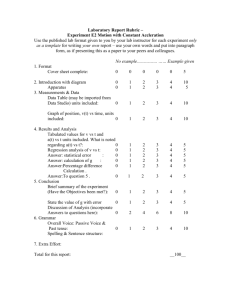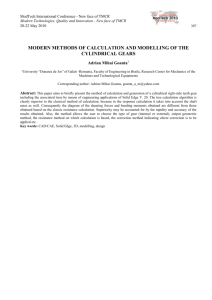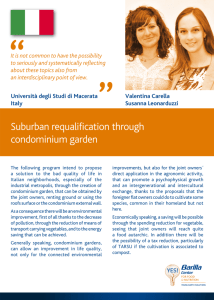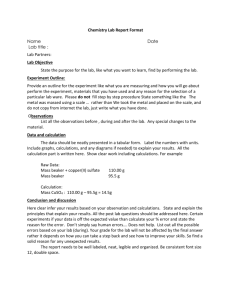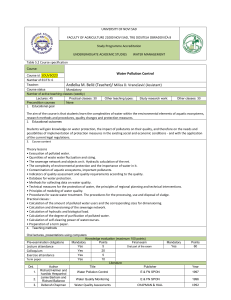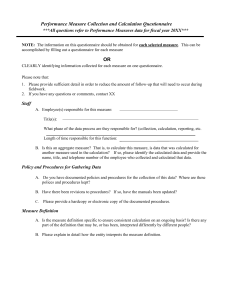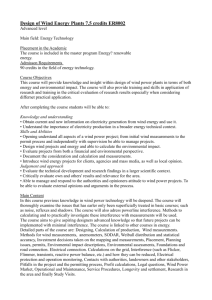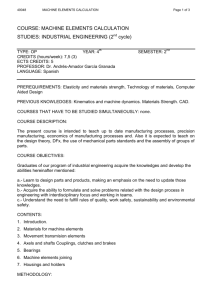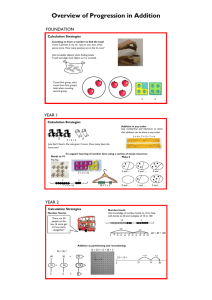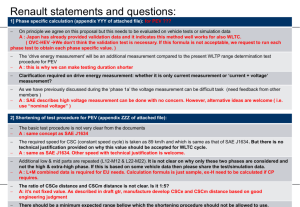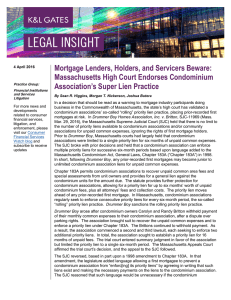Governor Signs Legislation Regarding Calculation of Percentage
advertisement
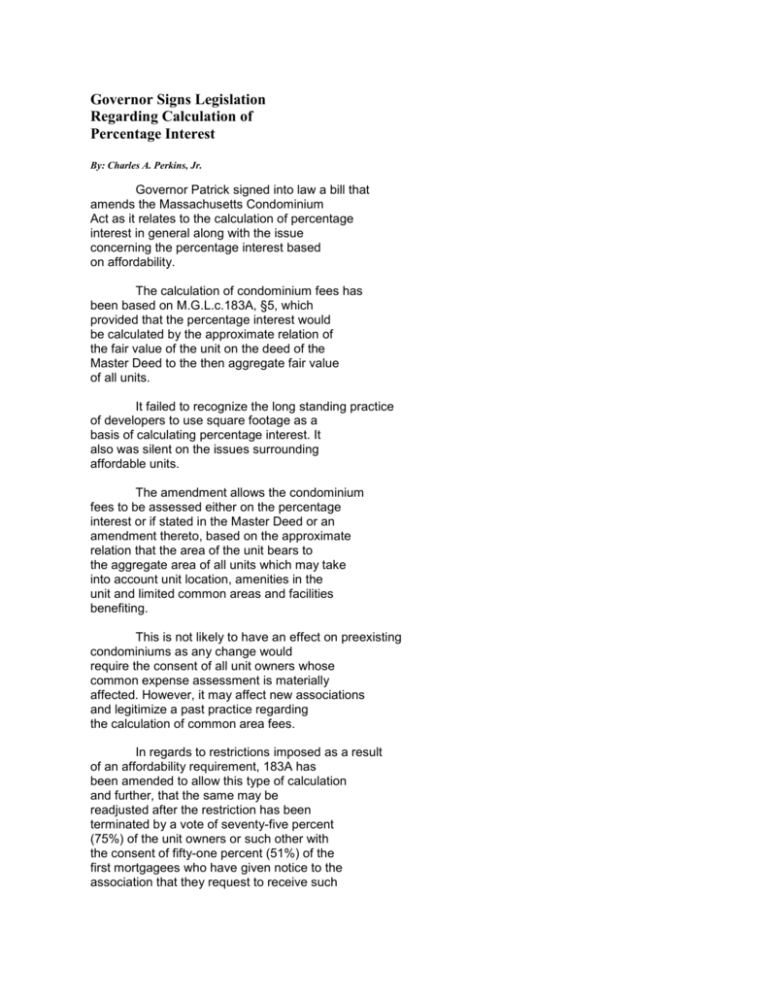
Governor Signs Legislation Regarding Calculation of Percentage Interest By: Charles A. Perkins, Jr. Governor Patrick signed into law a bill that amends the Massachusetts Condominium Act as it relates to the calculation of percentage interest in general along with the issue concerning the percentage interest based on affordability. The calculation of condominium fees has been based on M.G.L.c.183A, §5, which provided that the percentage interest would be calculated by the approximate relation of the fair value of the unit on the deed of the Master Deed to the then aggregate fair value of all units. It failed to recognize the long standing practice of developers to use square footage as a basis of calculating percentage interest. It also was silent on the issues surrounding affordable units. The amendment allows the condominium fees to be assessed either on the percentage interest or if stated in the Master Deed or an amendment thereto, based on the approximate relation that the area of the unit bears to the aggregate area of all units which may take into account unit location, amenities in the unit and limited common areas and facilities benefiting. This is not likely to have an effect on preexisting condominiums as any change would require the consent of all unit owners whose common expense assessment is materially affected. However, it may affect new associations and legitimize a past practice regarding the calculation of common area fees. In regards to restrictions imposed as a result of an affordability requirement, 183A has been amended to allow this type of calculation and further, that the same may be readjusted after the restriction has been terminated by a vote of seventy-five percent (75%) of the unit owners or such other with the consent of fifty-one percent (51%) of the first mortgagees who have given notice to the association that they request to receive such notices from the association. The bill was sponsored by Citizens Housing and Planning Association (“CHAPA”) and was supported by the CAI Massachusetts Legislative Action Committee.
